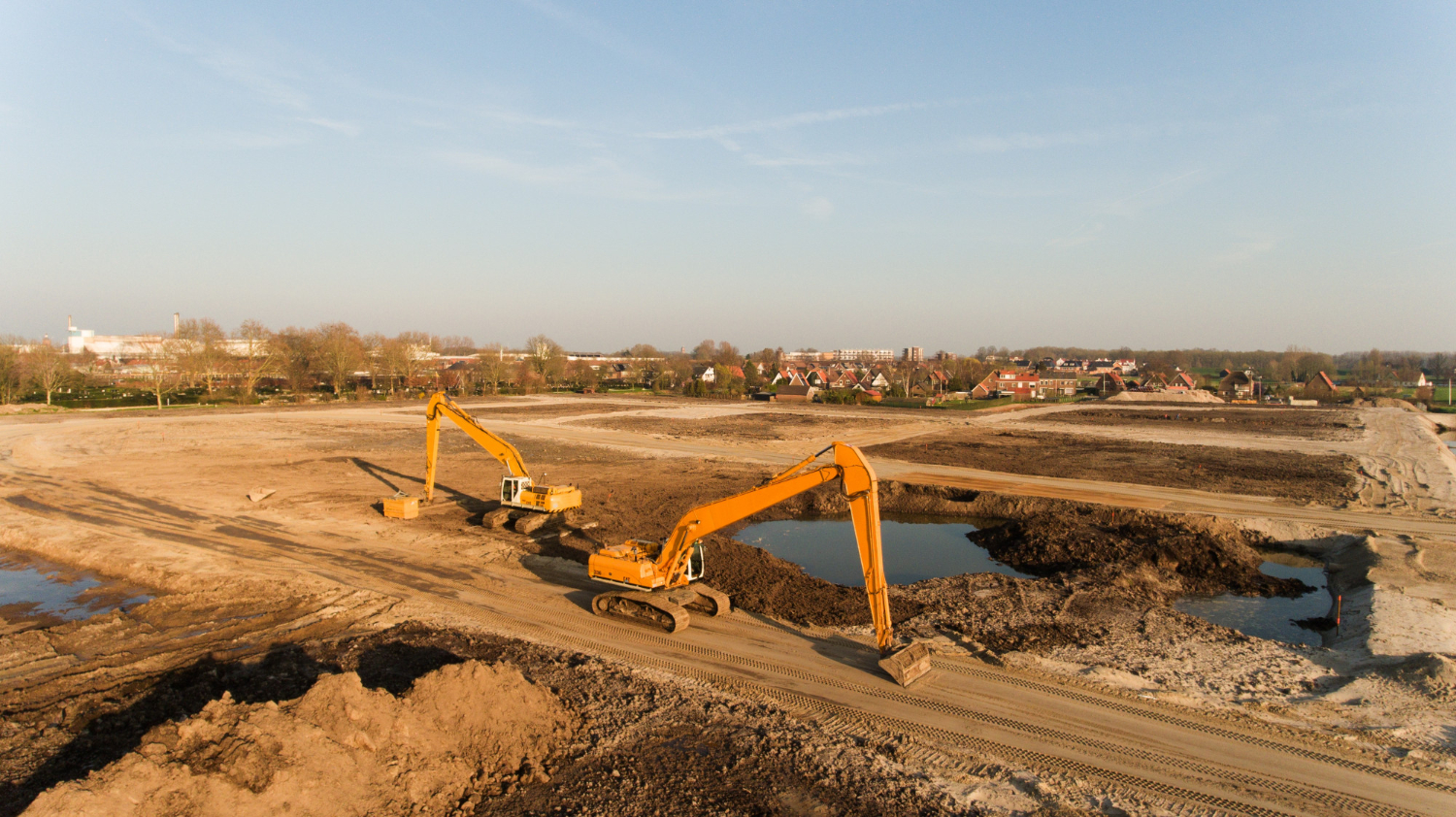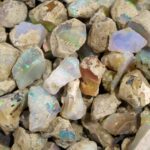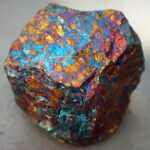Australia’s mining industry is renowned worldwide for its vast reserves of natural resources, and it plays a pivotal role in the country’s economy. The industry provides numerous employment opportunities, not only for skilled professionals but also for individuals seeking entry-level positions with no prior mining experience. In this comprehensive guide, we’ll explore the various entry-level mining jobs available in Australia, the qualifications and skills needed to secure these positions, and the career prospects they offer. Whether you’re looking for a fresh start in a new industry or simply exploring new horizons, Australia’s mining sector has something to offer.

Introduction
The mining industry in Australia is characterized by its diversity, encompassing a wide range of activities from coal mining to metal ore extraction, and even quarrying. This industry demands a diverse workforce to support its operations, which creates numerous opportunities for individuals looking to start a career in mining. While many might assume that mining jobs are solely for experienced professionals, there is a substantial demand for entry-level workers who require no prior experience in the sector.
Entry-Level Mining Jobs – What to Expect
Entry-level mining jobs vary significantly in terms of responsibilities and requirements. These positions often require skills that are not mining-specific, making them accessible to individuals from a wide array of backgrounds. Some entry-level mining roles involve administrative work, while others require hands-on activities such as machine operation, maintenance, and even driving. Here are some common entry-level mining positions you can explore:
1. Mining Administration Assistant
Mining sites require a range of administrative tasks to keep operations running smoothly. Administrative assistants are responsible for tasks such as data entry, record-keeping, scheduling, and communication. They often need good organizational and communication skills.
2. Haul Truck Driver
Haul truck drivers operate the heavy machinery used to transport ore, waste materials, or equipment within mining sites. These roles typically require no prior experience, but a valid driver’s license is essential, and on-the-job training is provided.
3. Machine Operator
Machine operators work with various equipment, such as bulldozers, excavators, and loaders. These positions demand good hand-eye coordination and the ability to follow safety guidelines.
4. Entry-Level Laborer
Entry-level laborers perform a range of manual tasks on mining sites, which can include anything from general cleaning and maintenance to assisting skilled workers. These roles are often physically demanding but can be a stepping stone to more specialized positions.
5. Mining Trainee
Some mining companies offer trainee programs to individuals with little to no experience. These programs provide structured training and education to equip trainees with the necessary skills to work in the mining industry.
Qualifications and Skills Required for Entry-Level Mining Jobs
Entry-level mining jobs are accessible to those with a variety of backgrounds and qualifications. While prior mining experience is not required, there are essential qualifications and skills that can make you a more attractive candidate for these positions. Let’s delve into the qualifications and skills necessary to secure entry-level mining roles in Australia.
1. Safety Awareness and Certifications
Mining operations prioritize safety above all else. A strong commitment to safety and an understanding of basic safety protocols are critical for entry-level roles. Obtaining relevant safety certifications, such as the General Safety Induction (GSI) certificate, can enhance your employability. This certification provides a foundation in mine safety and is often a prerequisite for working on mining sites.
2. Valid Driver’s License
Many entry-level mining jobs, such as haul truck driving, require a valid driver’s license. Ensuring you have the necessary license in advance can make you a more attractive candidate. In some cases, mining companies may also require additional endorsements on your license, such as a heavy vehicle license.
3. Physical Fitness
Working on a mining site can be physically demanding. Entry-level laborers, in particular, should be in good physical shape to perform tasks like heavy lifting, operating machinery, and working in challenging outdoor conditions. Regular exercise and maintaining your physical fitness can be a significant advantage.
4. Relevant Training and Education
While you don’t need a degree or extensive training to secure an entry-level mining job, having relevant training or education can boost your prospects. For example, enrolling in a heavy machinery operation course can provide you with valuable skills for machine operator positions. Additionally, certificates or diplomas in areas like logistics or administration can make you a more attractive candidate for support roles.
5. Soft Skills
Effective communication, teamwork, and problem-solving are crucial in any work environment, including mining. Demonstrating your ability to work well with others, adapt to new situations, and solve problems can set you apart during the application and interview process.
6. A Strong Work Ethic
Mining is an industry that often requires long hours and the ability to work in challenging conditions. Demonstrating a strong work ethic, punctuality, and reliability can make you a desirable candidate for entry-level mining jobs.
Finding Entry-Level Mining Job Opportunities
Once you’ve prepared yourself with the necessary qualifications and skills, the next step is to find entry-level mining job opportunities. Here are some strategies and resources to help you on your job search:
1. Online Job Portals
Online job portals are a valuable resource for finding entry-level mining jobs. Websites like Seek, Indeed, and Mining People International frequently list mining job vacancies. You can use these platforms to search for specific positions and submit your application online.
2. Mining Company Websites
Mining companies often post job openings on their websites. It’s a good idea to visit the career or employment section of mining company websites to explore current opportunities. Major mining companies like BHP, Rio Tinto, and Fortescue Metals Group typically have dedicated career pages.
3. Recruitment Agencies
Recruitment agencies can be a bridge between job seekers and mining companies. They specialize in matching candidates with suitable positions in various industries, including mining. Registering with a recruitment agency that focuses on mining can help you discover job opportunities tailored to your skill set.
4. Networking
Networking can be a powerful tool in job hunting. Attend industry events, join online forums and social media groups related to mining, and connect with professionals working in the industry. Networking can provide insights into job openings that may not be publicly advertised and can lead to valuable referrals.
5. Job Fairs
Participating in job fairs, especially those dedicated to the mining industry, can be an effective way to meet potential employers face-to-face. Job fairs provide opportunities for on-the-spot interviews and networking with industry representatives.
6. Government Programs and Initiatives
In some cases, government programs and initiatives support job seekers in finding employment in the mining sector. These programs may offer training, job placement services, and financial incentives to help you kickstart your career in mining.
Preparing for the Application Process
Once you’ve identified suitable entry-level mining job opportunities, it’s crucial to prepare for the application process. Here are the essential steps to take:
1. Tailor Your Resume
Craft a well-structured resume that highlights your qualifications, relevant skills, and any certifications or training you’ve completed. Tailor your resume to each job application by emphasizing the skills and experiences most relevant to the specific position.
2. Write a Compelling Cover Letter
A cover letter is your opportunity to introduce yourself and explain why you are a suitable candidate for the position. Be concise, and focus on how your skills and qualifications align with the job requirements.
3. Prepare for Interviews
If your application is successful, you may be invited for an interview. Familiarize yourself with common interview questions and practice your responses. Be ready to discuss your qualifications, skills, and why you are interested in a career in the mining industry.
4. Stay Informed
Demonstrate your interest in the mining industry by staying informed about industry trends, innovations, and the specific operations of the company you’re applying to. This knowledge can set you apart during the interview process.
5. Be Patient and Persistent
The job search process can be challenging, and it may take time to secure an interview or job offer. Stay patient and persistent in your efforts. Continue applying for positions, networking, and enhancing your qualifications to increase your chances of success.
Career Prospects in the Mining Industry
The mining industry in Australia offers attractive career prospects, even for those entering at the entry level. Here’s a look at some of the opportunities and growth potential in the sector:
1. Skill Development and Progression
Many entry-level mining jobs provide opportunities for skill development and career progression. You can gain hands-on experience and build a strong foundation for advancing to more specialized roles within the industry.
2. Competitive Salaries
Mining jobs are known for their competitive salaries. Entry-level positions often offer attractive compensation packages, which can improve as you gain experience and move up the career ladder.
3. Job Security
The mining industry in Australia is considered a stable sector with consistent job opportunities. Global demand for resources keeps the industry robust, providing job security for those within it.
4. Diverse Career Paths
The mining industry offers diverse career paths that extend beyond on-site roles. You can explore opportunities in areas such as logistics, project management, environmental management, and more, depending on your interests and skills.
5. Training and Education Opportunities
Mining companies frequently invest in the training and education of their employees. This means you can access programs and courses that help you further your skills and knowledge, making you more valuable to your employer.
6. Environmental and Social Responsibility
The modern mining industry places a strong emphasis on environmental and social responsibility. This means there are opportunities for those interested in sustainability and community engagement to contribute positively to the industry.
Real-Life Success Stories
To inspire and motivate you further, let’s explore two real-life success stories of individuals who started their careers in the mining industry from entry-level positions:
Success Story 1: From Haul Truck Driver to Site Supervisor
John, with no prior mining experience, started as a haul truck driver in a large mining operation in Western Australia. He obtained his heavy vehicle license and safety certifications and worked diligently. Over the years, he demonstrated his commitment to safety, reliability, and a strong work ethic. These qualities led to promotions and, eventually, a position as a site supervisor, overseeing a team of operators and ensuring site safety and productivity.
Success Story 2: Administrative Assistant Turned Project Coordinator
Sarah had a background in administration but was eager to explore new opportunities. She secured a role as an administrative assistant with a mining company, where her organizational and communication skills were put to good use. Over time, she took advantage of training opportunities provided by her employer and learned more about the industry. Sarah’s dedication led her to become a project coordinator, managing various administrative aspects of major mining projects.
These stories highlight that entry-level positions can be the starting point for fulfilling careers in the mining industry, with opportunities for advancement and personal growth.
Conclusion
The Australian mining industry is a dynamic and diverse sector that welcomes individuals with the drive and determination to succeed, even without prior mining experience. Entry-level mining jobs offer a gateway into this lucrative field, where career opportunities are abundant, and growth potential is significant. By acquiring the necessary qualifications, skills, and networking, you can embark on a rewarding career in the mining industry.
Remember that success in the mining industry often begins with entry-level roles that provide essential experience and lay the foundation for future growth. Whether you’re driving haul trucks, operating heavy machinery, managing administrative tasks, or embarking on a mining trainee program, there is a place for you in Australia’s mining sector. With dedication and a commitment to safety and excellence, you can not only secure a job but also build a prosperous career in this vital industry. So, take the first step, apply for those entry-level positions, and pave your way to a promising future in mining.
Australia’s mining industry is waiting for you to join its ranks, and with the right qualifications and a strong work ethic, your journey towards a fulfilling and successful career can begin today.





